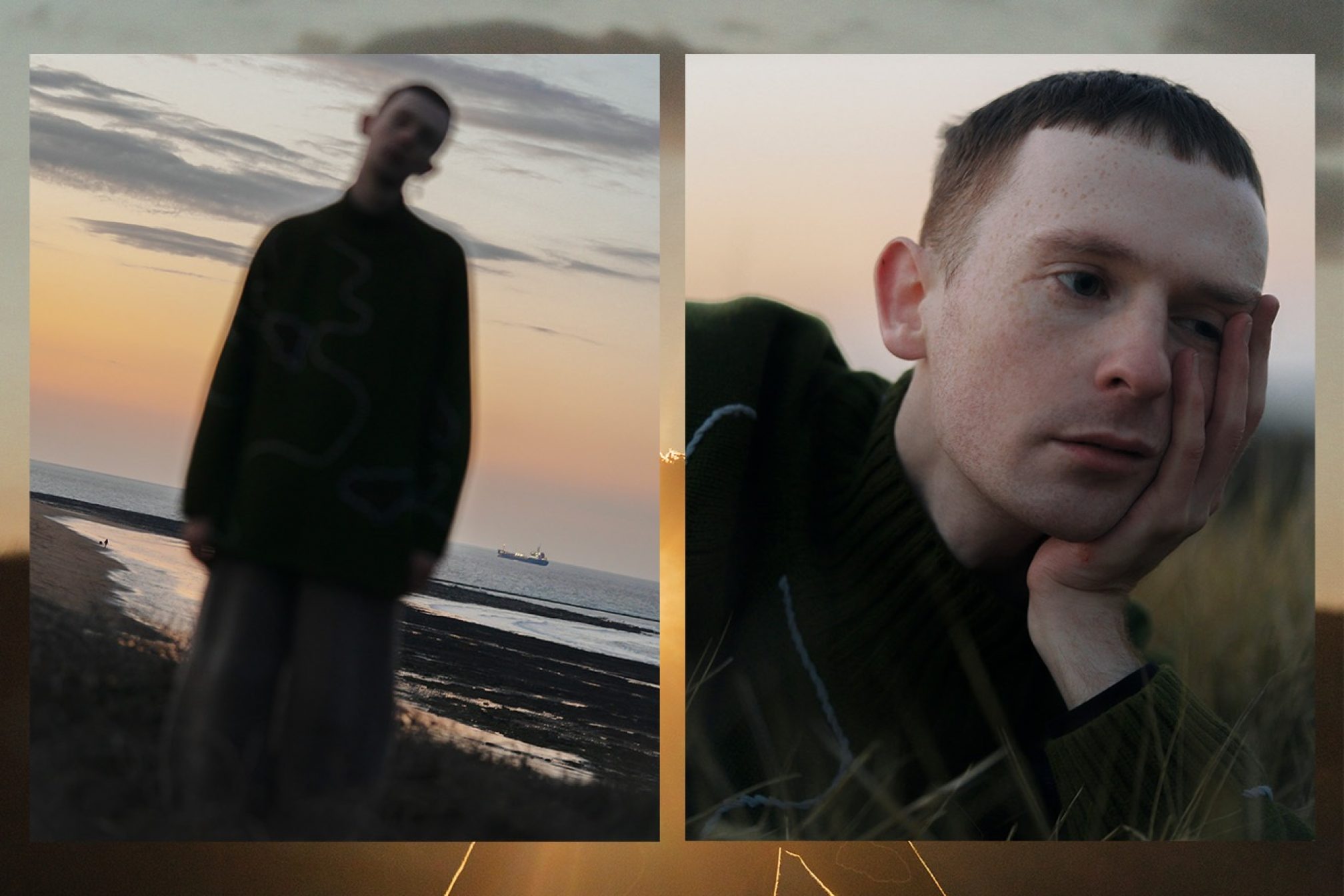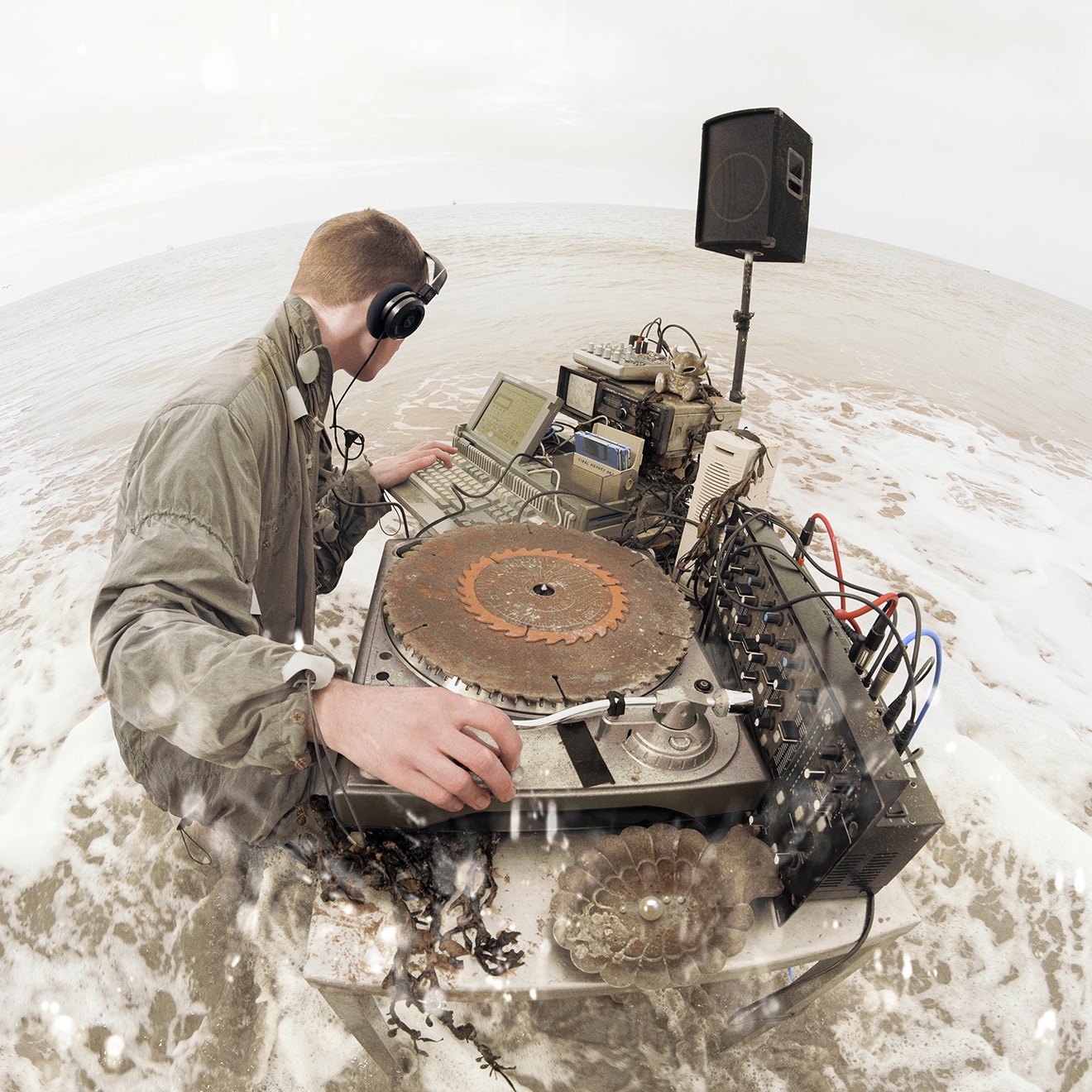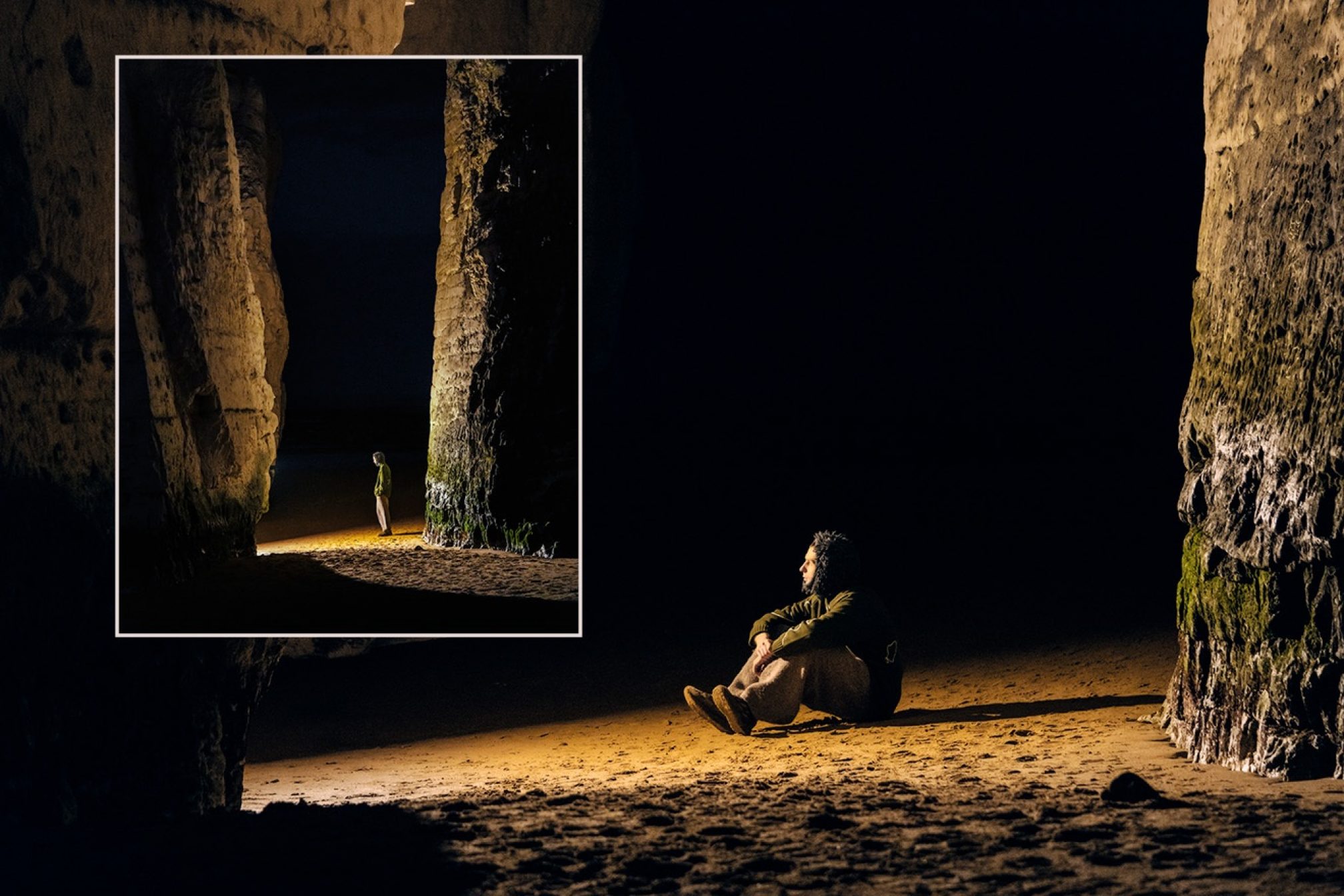 Features
Features
Childlike wonder: Inside the cinematic, reality-blurring world of Iglooghost
Following the release of his third studio album ‘Tidal Memory Exo’, we sat down with the elusive producer to talk through the mysterious lore around his projects and creating an alternate world through music and visuals
On a dreary, overcast day in the UK, Iglooghost and I connect over the line on Zoom. He rarely does interviews this way, often opting for a more lowkey, text-based approach akin to enigmatic artists like Two Shell, but his shy nature quickly settles when we start to chat. It’s miserable out, but that’s a fitting backdrop for Iglooghost – when it comes to his productions, he takes a lot of cues from the bleakness of England.
Seamus Rawles Malliagh, AKA Iglooghost, grew up in Dorset, a British seaside county stretching across the drizzly English Channel, famed for its geological hallmarks and cream-coloured cliffs. A “cultural wasteland” as he calls it, Dorset was the main source of inspiration for Iglooghost’s second studio album, 2021’s ‘Lei Line Eon’, which found acclaim for its unusual fusions of bass music and hugely cinematic, detailed instrumentation. The record was a culmination of Seamus’ research into so-called ‘Lei music’, a genre he’s said has “extraordinary effects” which some believe could be related to a “variety of properties unique to Dorset”, including floating pebble circles and otherworldly phenomena, casting an unusual web of folklore and geological myth around his hometown.
Read this next: Taktfakt was an otherworldly techno experience
“You have to work really hard as a kid to not die of boredom growing up in the middle of nowhere,” explains the DJ, producer, and vocalist. “You constantly draw from the recesses of your imagination, growing up somewhere so isolated”. More recently, through the brief periods of lockdown in the UK, Seamus lived in what he describes as a “strange little pseudo-house inside an MOT garage constructed out of plasterboard”, where fume marks stained the walls and tiles were missing from the ceiling. “It was just extremely nasty,” he says. “It was in a really liminal suburban nowhere-zone. Being in that environment and making music by the sea in that part of the country, it's pretty grim. Every day I’d cycle down this concrete seafront, the water was always brown, the sky was grey, and the wind was battering me. I was obsessed with how visceral that was, the bleakness of it all.”

Like ‘Lei Line Eon’, Seamus pulled inspiration from his surroundings in this “grim” environment for what would then become his third album, ‘Tidal Memory Exo’, compiling 13 tracks with a release on LUCKYME® earlier this year. Seamus once again imbued the record with a crafted lore – building the album around a fantasy narrative that looks inside the mind of a creative architect. The record’s blurb tells a story not too far from the truth, with a few added fabrications. “‘Tidal Memory Exo’ is an album I made while living in a rust-ridden flooded squat in a weird UK seaside town,” the description reads. “The area has been in an endless storm, causing strange otherworldly primordial garbage to be washed to shore. It’s basically only populated by rogue junk-hoarding scrap weirdos right now”.
The cover art for ‘Tidal Memory Exo’ pictures Seamus in amongst the dull grey sea, surrounded by live music equipment, wires, and a vinyl record resembling a rusted saw wheel. This strange backdrop almost entirely encapsulates what this album sounds like sonically, too – punky, washed-up elements shine through distorted basslines and glitchy, deconstructed synths, part industrial, part alien. It sits at the bleeding edge of experimental bass music, and – for the very first time – uses full-fledged vocals from Seamus.
“I’ve always used my vocals in weird ways, but they’ve just gotten louder,” he says. “It’s fun, you have to make way for that little band of frequencies that let your voice occupy the space. It's definitely made me think much differently about production. I do just love writing words too, but I'm starting to realise there's only about 30 words that I like,” he says, before listing off a handful of words like ‘syphon’, ‘echinoid’, ‘dynode’, and ‘fluorescent’. “There’s not enough words in the English language,” he laughs. “Whenever I'm recording, I'm spending most of the time looking through a thesaurus!”
The making of ‘Tidal Memory Exo’ was a long and arduous process, Seamus explains, the “most draining” album he’s worked on yet, in part due to the tedious visual work put in behind the scenes. Alongside his productions, Seamus entirely curates the visual world behind his records, including the animation. “Compared to my visual stuff, the music making process plays second fiddle,” he says. “I spend most of my time writing thinking about how the audio can be paired with a visual context, and I find that the biggest challenge. These days, the music flows faster than ever, it just requires a multimedia storytelling context for me to not chuck it in the bin.”

His mind has “always worked in this way”, he adds, ever since he was a child drawing up fake Pokémon cards or making “crude” little figurines. “I think what I'm doing now is a more convoluted version of the bullshit I was up to as a kid,” he jokes. To deepen the expanse of his ‘Tidal Memory Exo’ world, Seamus built a website named Exo Portal, described as “the most bangin’ place to link up, download wares and tunes, and chat about current coastal phenomena”.
Upon opening the site, you’re met with a message that reads: “U HAVE MADE IT TO THE EXO NETWORK PORTAL. EVER SINCE THE ORIGINAL WORLD WIDE WEB WENT DOWN, WE HAVE BEEN HOSTING OUR OWN ALT NET FROM OUR SECRET OIL RIG SERVERS”. The site houses a chat room named the ‘Pond Scum Lounge’ where fans hunt for Iglooghost’s long-lost music, and a ‘Junk Marketplace’ selling fictional goods for fictional currencies.
Read this next: A fan's journey on the trail of Two Shell's digital breadcrumbs
“On Exo Portal, there’s a Top Tunez chart of music that’s been coming out of what people are coining the ‘tidal scene’, but my stuff is always flopping. It’s like right at the bottom,” he says. “I've just been trying to weasel my way into the scene, even though they don't really like me”. Exo Portal also hosts some “mysterious snippets” of rare Iglooghost tracks, Seamus explains, which cryptically circle the website. It’s common practice for Seamus to send fans on a scavenger hunt for his tracks – he enjoys the “feeling of scarcity and rarity” in music. “I’m really inspired by early memories of hunting for MP3s and how pre-streaming music used to possess that feeling. Somehow, my brain categorises that shit in the same compartment as collecting Pokémon cards.”
“I just find the idea of rare music really alluring, I love that a lot of artists have these legendary urban myth snippets that will never get heard in full. I definitely try to play with that idea, and create meta-narratives around certain unreleased songs,” he explains. Fascinated by the “insane masses” of unreleased music sitting on hard drives all over the world that might never see the light of day, Seamus explains: “It’s so easy to make studio-quality music on a laptop, and competition is so heightened by the internet. These days I've been trying to get into the habit of being like, ‘everything must go’, even with little beat sketches. I’m lucky that, with my music, there’s always a way to work these scraps into the lore or sneak it into a little secret website wherever I can.”

Since Seamus rarely goes by the book, he finds a kind of comfort in the fact that he doesn’t use rack after rack of music gear when making his enormous, filmic sonic explorations – he just needs a laptop and some decent music software. “Over time, it's been cool to see people shake off these vestigial ideas of what counts as a legitimate setup,” he says. In past live shows, Seamus would enter the stage with his laptop in tow, performing with a bare minimum setup. Nowadays, he prefers the theatrics. “There wasn’t much of a jam element in those older shows, and it feels dishonest to pretend that there was,” he says. “Gradually, it's become more about set building and the theatrics that happen outside of the music.”
In true Iglooghost fashion, Seamus now brings lore to life with his live performances. Take his recent outing at London’s fabric, for example, where he entered the stage with a metal detector, surrounded by giant circular LED screens picturing oceanic rock pools and fantasy creatures, glowing eggs and hanging shells lining the stage. “I’ve got a bunch of stuff I can climb on, and a creature that I’ll feed on screen,” he says. “It's a much more fruitful space to play with, rather than me just doing something on my laptop.
Read this next: Let's get physical: How independent artists are reinventing the physical release format
Seamus hopes that, at some point in the future, he might be able to connect all the dots between the different fantasy worlds of each of his projects thus far. “Maybe when I'm like 100 years old, I’d love to come up with a cool way to retroactively connect all the lore,” he says. “I do have an idea in my head about how it could work, but for now, they're all like separate little islands”.
Not just in his world-building, but in our interview, too, little fabrications seem to come quite naturally to Seamus. Who knows which of his words are fact or fiction — and does it matter if the story's good? When challenged with questions about past interviews, his face contorts into a cheeky smile as he laughs: “That was a silly lie I told”. Keeping up the enigma of a truly unpredictable artist with bundles of childlike wonder, Seamus refuses to take himself too seriously. He’s created a world where the line between fantasy and reality is thoughtfully, though often confusingly, blurred – but that’s the beauty of it all.
'Tidal Memory Exo' lands on physical formats on November 22. Grab a copy here
Gemma Ross is Mixmag's Assistant Editor, follow her on Twitter


